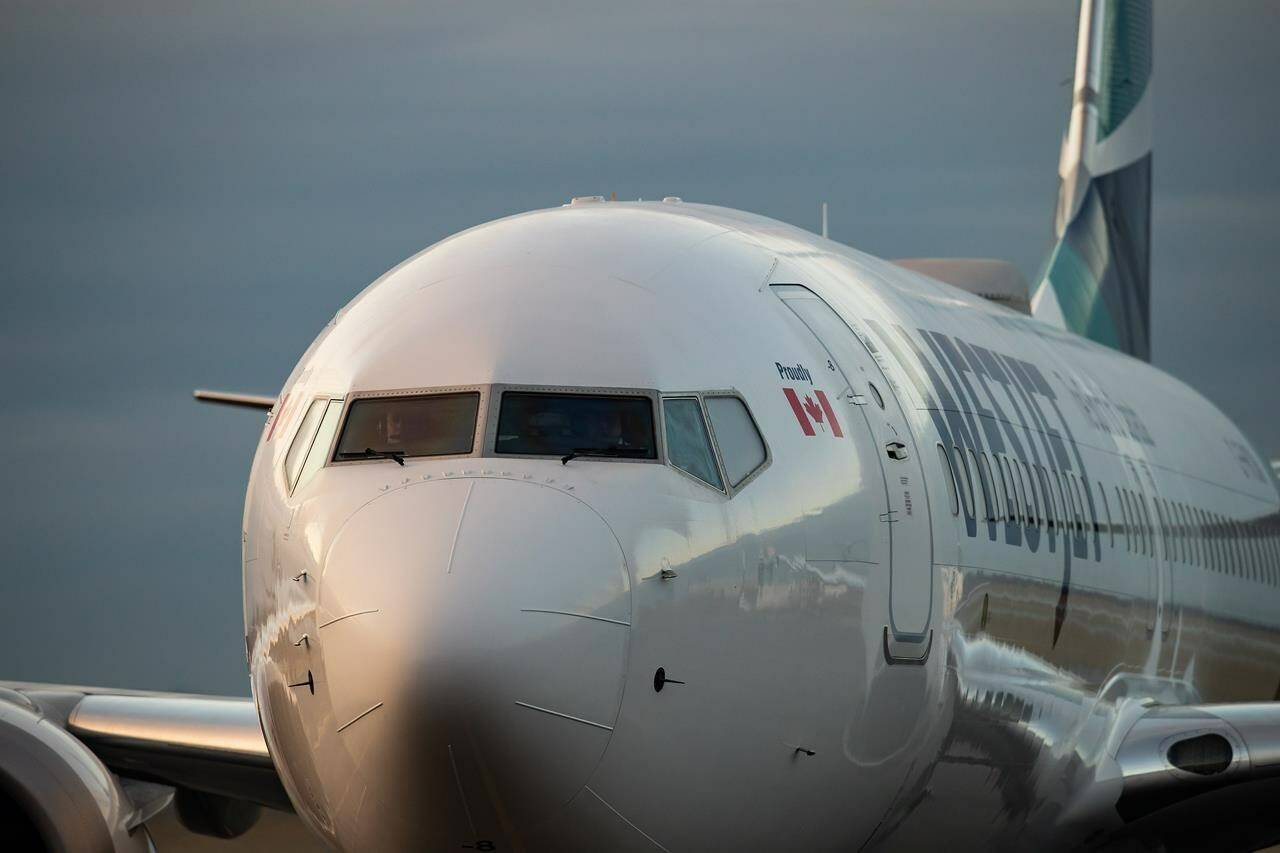Canada’s two main airlines continue to slash their schedules and demand that Ottawa roll back COVID-19 travel restrictions to staunch the cash bleed — though experts see glimmers of hope on the horizon.
WestJet Airlines Ltd. has cancelled 20 per cent of its flights in March, extending schedule cuts from February amid ongoing uncertainty that continues to drain demand.
Interim CEO Harry Taylor said travel advisories and testing requirements were meant to be temporary, but that after two years the industry crisis has come to a head.
“It is disappointing that Canada remains stagnant in its approach and continues to make travel inaccessible and punitive for Canadians and inbound tourists,” he said Monday.
Echoing demands from Air Canada and Toronto’s Pearson airport last month, WestJet called for randomized testing upon arrival only, rather than mandatory molecular testing before takeoff and after landing for fully vaccinated international passengers. The Calgary-based company also wants an end to quarantines for travellers awaiting results when they return from abroad.
Canada remains the only G7 country to require pre-departure and on-arrival molecular testing, Taylor noted, adding Ottawa must outline a recovery path for the travel and tourism industry.
Since early November, WestJet and budget subsidiary Swoop have cancelled 11,285 trips that they had planned for March, or 48 per cent. Meanwhile, compared with its plan in mid-October, Air Canada has scrapped 16,617 or 41 per cent of its scheduled March flights, according to flight data firm Cirium.
More cuts may be en route across the airlines, as passengers hold off on ticket purchases until closer to the departure date to ensure pandemic measures don’t mar their travel plans. If the bookings come through, the flight schedule may hold steady, but if they don’t then even fewer planes will leave the tarmac than planned.
“Nowadays many more people are making even their leisure travel decisions at the last minute, because the world is a very fluid place right now and people are finding it difficult to plan months in advance with changing restrictions and changing rules,” said David Huttner, a London-based aviation expert.
“Maybe I’d rather drive in my own car by myself — travel habits have changed too, especially on shorter flights.”
Richard Vanderlubbe, president of Hamilton-base Tripcentral.ca, has cut nearly 60 per cent of his 160 employees and shuttered all 26 office locations in Ontario and Atlantic Canada since early 2020. But the travel agency founder, who offers bookings mainly to Caribbean destinations, remains upbeat.
“I’m seeing lots of hope,” he said. “Consumer confidence is climbing, despite the travel advisory still being there … Things are returning. We’ve seen a big uptick.”
Bookings for winter and early spring are on the rise as Family Day — observed in six provinces including Ontario, Alberta and British Columbia — reading week and March break approach, Vanderlubbe said.
“For summer it’s a little more wait and see right now.”
Even with a return of vacation bookings, business remains at 40 per cent of 2019 numbers, Vanderlubbe said.
Travel agencies have also had to adjust their approach to pitches and promotions.
“We used to sell the resorts and everything about it,” he said. “Now people just sorting out through all of the restrictions and rules has become kind of the new marketing for travel, which is very odd.”
—Christopher Reynolds, The Canadian Press
RELATED: Airlines, airport ask Canada to drop arrivals testing requirement

